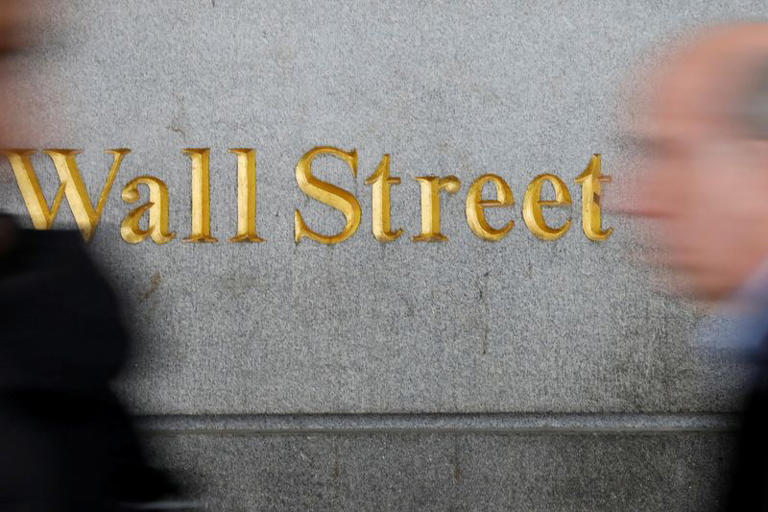The recent decline in heavyweight stocks, which have been central to the market’s gains this year, underscores Wall Street’s heightened vulnerability to any downturns in the Big Tech sector. This situation is raising concerns that overstretched stock valuations could lead to further market turbulence.
The catalyst for this selloff was disappointing quarterly earnings reports from two major tech players: Tesla and Alphabet, Google’s parent company. On Wednesday, these reports led to a significant market downturn, with the Nasdaq Composite—a tech-heavy index—plummeting 3.6%. This was its worst performance since October 2022. Concurrently, the S&P 500, a broader benchmark, dropped 2.3%. The negative earnings reports from these tech giants sparked widespread anxiety about the potential for similar disappointments from other major tech firms, amplifying market concerns.
Thomas Martin, senior portfolio manager at GLOBALT, highlighted that the poor performance from Tesla, which reported its lowest quarterly profit margin in five years, acted as a “hair trigger” for investors. The results prompted a reevaluation of their exposure to technology and growth stocks. “This was the hair trigger for people saying, ‘Wow, I’ve got way too much exposure to information technology and growthier type companies,'” Martin observed. This shift in sentiment is pushing investors towards greater diversification to mitigate risks associated with heavy investments in tech stocks.
The market turmoil comes after a prolonged rally driven by optimism surrounding artificial intelligence (AI) technology. Key technology companies such as Nvidia, Microsoft, and Amazon saw their stock prices surge as interest in AI soared, propelling the S&P 500 to record highs earlier in the year. However, the recent disappointing earnings reports have revealed vulnerabilities in this bullish narrative.
The “Magnificent Seven” stocks—Meta Platforms, Apple, Nvidia, Microsoft, Amazon, Alphabet, and Tesla—have played a significant role in driving the S&P 500’s performance, contributing around a third of its 14% gain in 2024. The trajectory of these megacap stocks has become a crucial factor in determining the broader market’s performance. As their valuations soared, concerns about their sustainability grew, with comparisons to the dotcom bubble of the early 2000s becoming more frequent. Currently, the S&P 500 is trading at approximately 22 times expected earnings, a level not seen in over two years and significantly higher than its 10-year average of 18. This elevated valuation has sparked apprehensions about whether the market has become too optimistic, leaving stocks vulnerable if earnings growth expectations are not met.
Recent weeks have seen increasing investor anxiety about tech stocks. One indicator of this growing unease is the rise in the Cboe Volatility Index (VIX), known as Wall Street’s fear gauge. The VIX, which measures demand for portfolio protection, spiked to its highest level in three months on Wednesday, reflecting heightened concerns among investors.
Hedge funds have also been adjusting their market exposure in response to these developments. According to notes from prime brokers at Goldman Sachs and Morgan Stanley, hedge funds have been reducing their market positions over the past two weeks. This move is driven by fears that gains from earlier in the year could evaporate if sentiment around tech stocks shifts. Andrew Volz, chief operating officer at prime broker Clear Street, noted that hedge funds were actively deleveraging their portfolios on Wednesday, selling long positions and covering bearish bets. “There were definitely general liquidations of things like Nvidia, Tesla, all the big seven tech companies,” Volz reported.
The sharp declines in major tech stocks reflect broader concerns about the sustainability of their recent gains. For instance, Tesla shares fell over 12%, marking their worst daily drop since 2020. Nvidia’s shares lost 6.8%, while Microsoft and Apple saw declines of 3.6% and 2.9%, respectively. These significant drops underscore the market’s growing concerns about the durability of high valuations and the potential for further volatility.
As the S&P 500 remains just 4% below its all-time high reached earlier this month, some investors are questioning whether Wall Street’s optimism about earnings growth has become overextended. If companies fail to meet high expectations in the coming months, stocks could face additional pressure. For example, Alphabet’s shares fell more than 5% on Wednesday, despite reporting better-than-expected revenues. Investors grew concerned that rising investments in AI infrastructure could squeeze profit margins and that YouTube might face increased competition for advertising dollars.
Jake Dollarhide, CEO of Longbow Asset Management, suggested that the market’s expectations for earnings might have been set too high. “Even Alphabet’s earnings beat, but the market obviously wasn’t impressed and they didn’t beat by enough,” he said. This sentiment reflects the challenges of maintaining elevated expectations in a volatile market environment.
Looking ahead, the upcoming earnings reports from Meta, Microsoft, and Apple will be crucial in determining whether the recent downturn is a short-term pullback or indicative of a broader trend. Tim Ghriskey, senior portfolio strategist at Ingalls & Snyder, remains cautiously optimistic, suggesting that a strong performance from these companies could quickly reverse the current market turbulence. “We’re in a little bit of a pullback. But to me, it’s really just a short-term thing,” Ghriskey said. “If we see some good numbers in the coming days, it could reverse just as quickly.”
Overall, the recent market movements highlight the delicate balance in the stock market, particularly within the tech sector. The performance of major tech companies will continue to be a critical factor in shaping market dynamics as investors navigate the challenges posed by high valuations and shifting sentiment.
